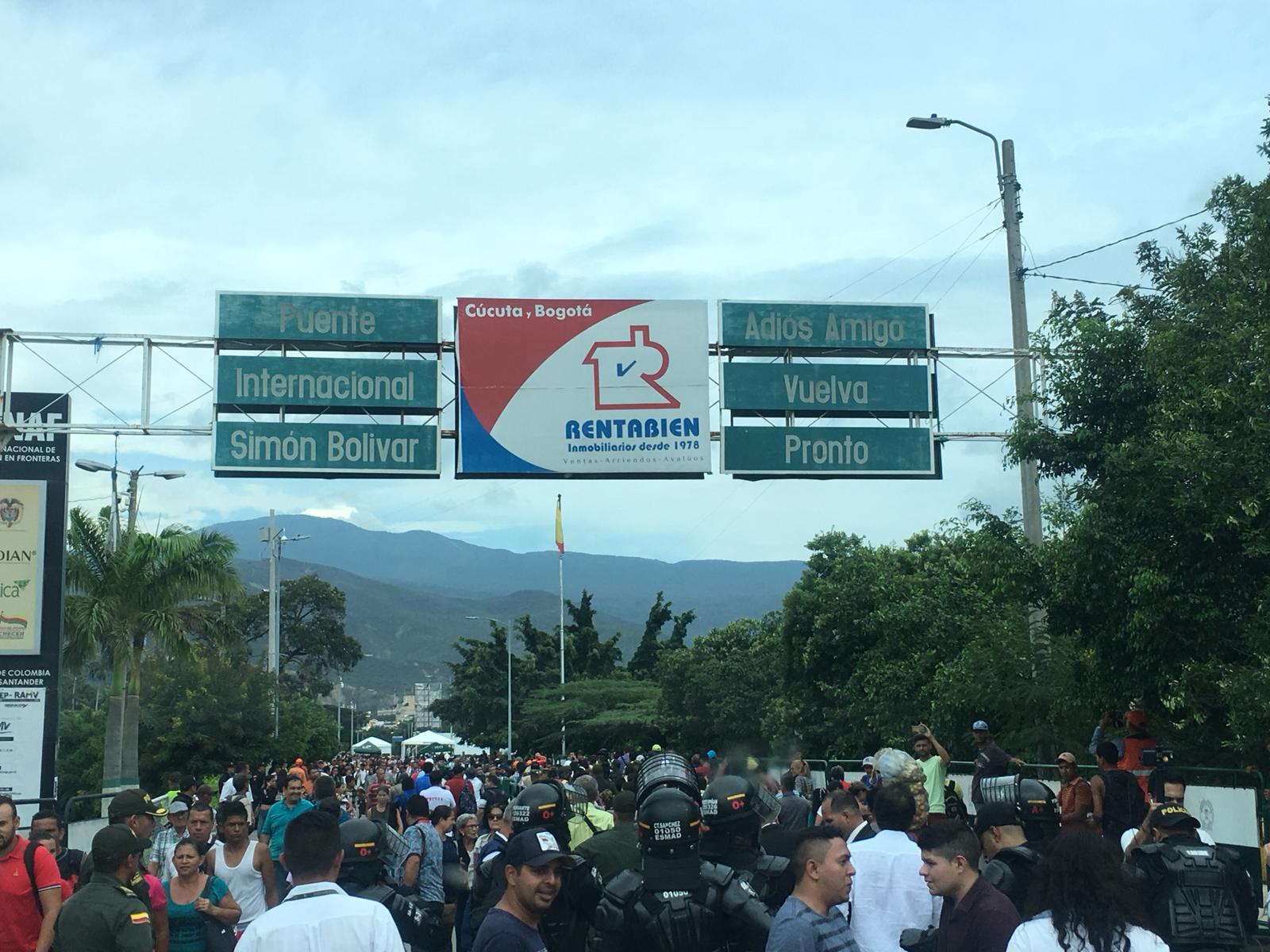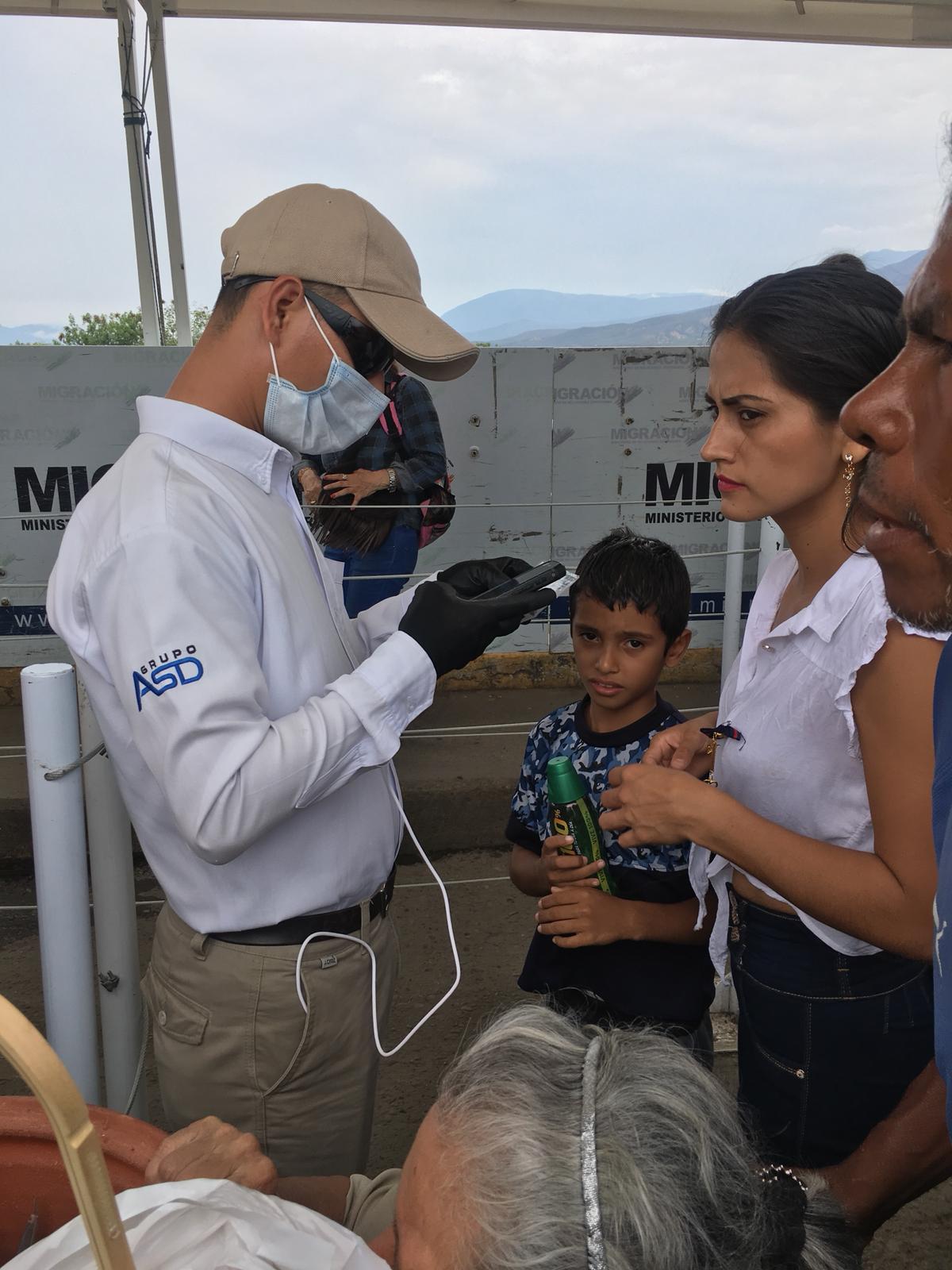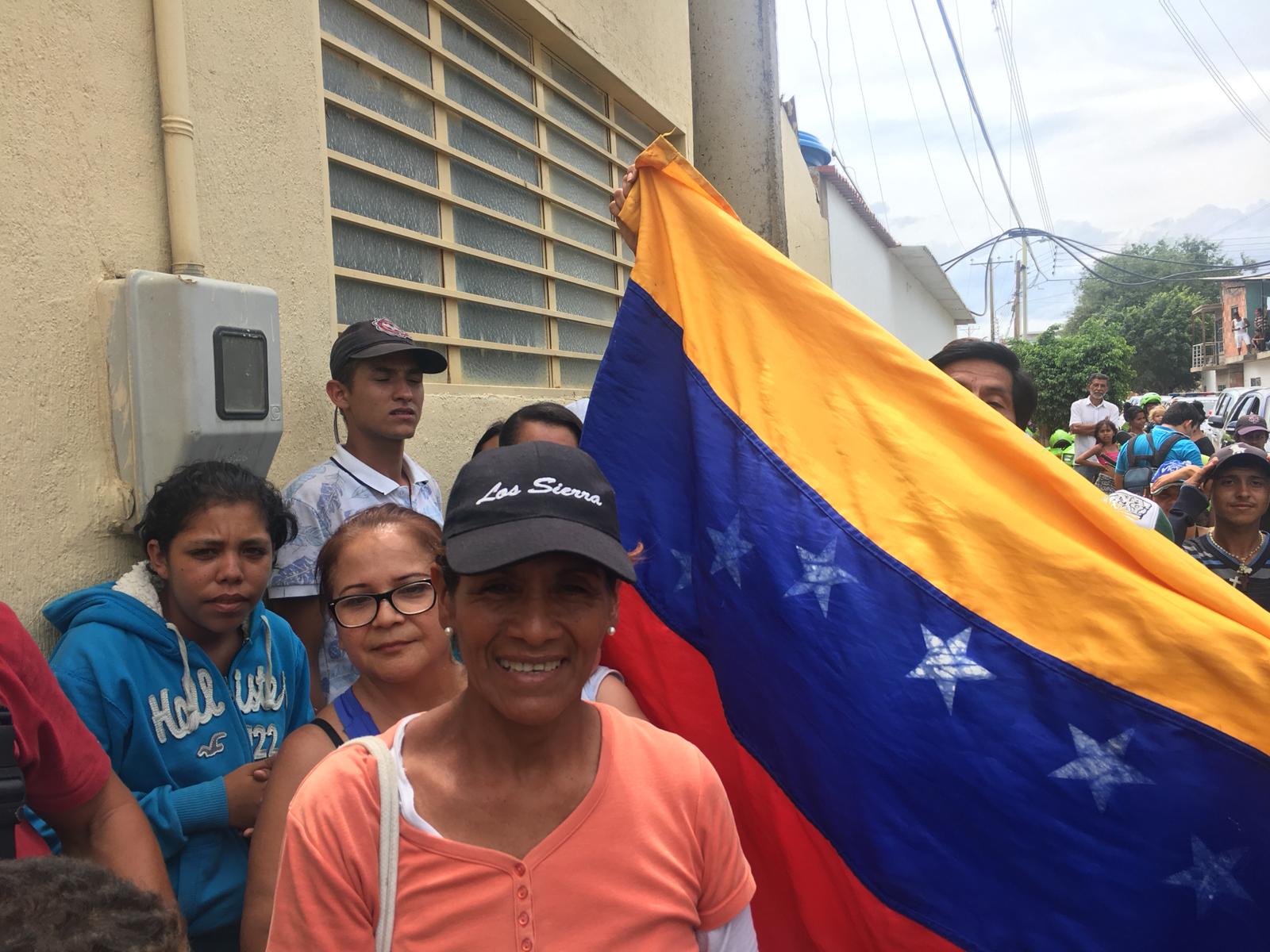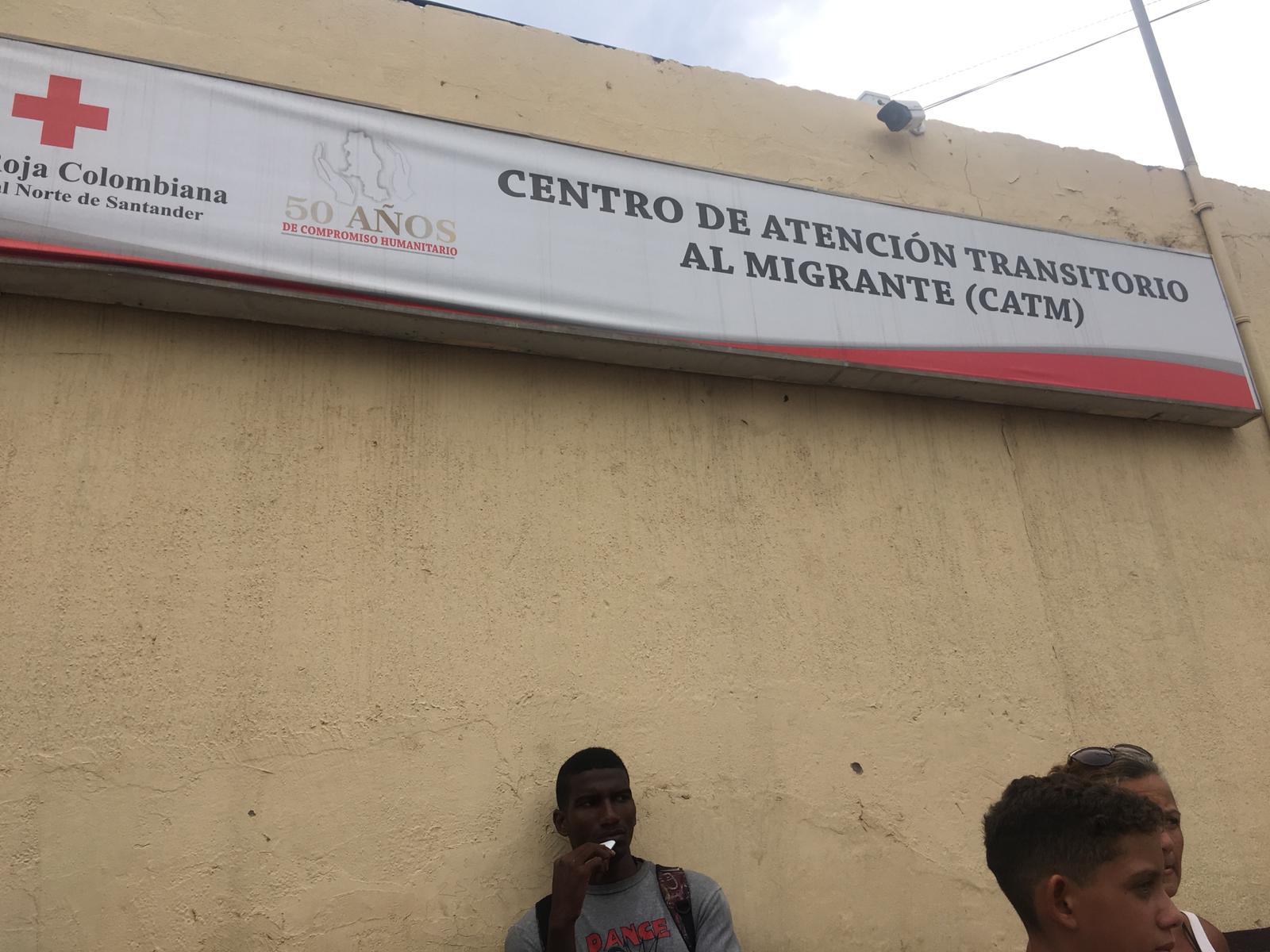Frontera Chronicles II: Venezuelans in Colombia Fight for a Better Life
During Almagro’s visit to Cúcuta, a city in the Colombia-Venezuela border, we got to see the depth of Venezuelans’ struggle. We identified the challenges ahead and the possible solutions to make it easier for migrants, refugees and for the receiving countries.


Photos: Betilde Muñoz-Pogossian
You can read our first Frontera Chronicle, to know more about Venezuelan migrants and refugees in Brazil.
From September 12 to 15, 2018, I joined OAS Secretary General Almagro during his visit to Colombia. We went to Cúcuta, on the border between Venezuela and Colombia, and closely observed the precarious conditions Venezuelan migrants live in, and the efforts the Colombian government, civil society and the Church are doing to respond to the migrant crisis. Migración Colombia informed us that each week between 10 to 16 thousand Venezuelans come to Colombia to stay permanently, in transit to other countries, or to buy food and medicine.
Let’s imagine these numbers, week after week, just in Colombia.
The Venezuelan crisis isn’t only Venezuelan anymore. We should recognize that given the size and volume of the flow, and the fact that they are increasing rapidly, countries in the region aren’t prepared to receive such a large displaced population, or to deal with the humanitarian challenges that the situation presents. We should also recognize that this crisis is likely to continue throughout the foreseeable future taking into consideration the deteriorating economic, social and political conditions in Venezuela. In other words, the phenomenon is likely to continue as long as democracy and human rights are not restored in Venezuela.
 “Migración Colombia informed us that each week between 10 to 16 thousand Venezuelans come to Colombia.”
“Migración Colombia informed us that each week between 10 to 16 thousand Venezuelans come to Colombia.”
We visited Colombia and met with governmental actors addressing the flow of Venezuelans, civil society actors, and Venezuelans themselves. Desperation is the word that labeled the day. Venezuelans want access to food, medicines, diapers, a dignified job. I saw children sleeping on the streets and parents wanting to protect them. There’s an indescribable amount of necessity, and the cost of covering those needs is unfairly being assumed by the government of Colombia.
Looking at our paisanos’ situation in comparative perspective, it was evident that there are important challenges to ensure the proper reception and integration of Venezuelans into host societies. Here are some.
Challenges in terms of identification
We all know how difficult it is to get a Venezuelan passport. Problem is, that passport or no passport, Venezuelans will continue to leave and when they’re not able to enter other countries with birth certificates or the cédula de identidad, for instance, they will recur to illegal cross paths, or trochas, which will make them vulnerable to new human rights abuses. It was good that, through the Declaration of Quito, at the beginning of September, countries agreed to accept expired passports.
But this is not enough. The countries of the region could agree on a common identity protocol to request Venezuelan nationals for crossing the border. Another possibility would be creating an international, regional, UN or OAS identity document for Venezuelans who have been denied that right in their native country.
 “Passport or no passport, Venezuelans will continue to leave”
“Passport or no passport, Venezuelans will continue to leave”
Regularization and the unwanted consequences of irregular migration
Upon arriving in destination countries, Venezuelans can choose to adhere to the migrant or refugee status, among other options. Each country has a legal system that establishes the types of access. This implies a series of procedures and costs to achieve this regularization, which is in fact the gateway for their integration into the country of destination. It’s essential that receiving countries take steps to further facilitate the process of regularization of their migratory status and harmonize norms and procedures for regularization, as far as possible. A possibility would be to collectively agree on a regional “Temporary Protection Status”, the same as the one given in the U.S. to Central Americans, that all countries could implement to regularize and ensure protection needs for Venezuelans.
Labor Inclusion and Informality
If the regularization of Venezuelan migrants and refugees isn’t achieved, at least two consequences should be cause for concern: Non-regularization hinders their access to formal employment and an increase in informality, which ends up affecting the economy of the country of destination and can lead to new human rights violations, including for example, abuse by employers, a gateway into prostitution networks of migrant women or children, and from there to human trafficking. Ideally, countries of the region could consider the possibility of granting a work permit automatically to Venezuelan citizens requesting asylum, or temporary residence from the moment of application. Also, labor inclusion, entrepreneurship and skills training programs that allow Venezuelans to generate remuneration should be considered.
Xenophobia and discrimination
One of the undesirable effects of migration is xenophobia and discrimination. We have covered this in the past. Regrettably, Venezuelans have suffered public and aggressive manifestations of xenophobia: from violent attacks against Venezuelans and their houses, to marches against Venezuelan migration, and passive-aggressive manifestations of the phenomenon. There is an urgent need to work against discrimination against Venezuelans, via campaigns based on empathy and solidarity using mass communication and social media.
There are also other challenges regarding schooling for migrant and refugee children, recognition of academic degrees, the vulnerabilities migrant and refugee women face, and access to health services, which were also evident during the visit to the frontera.
 “Venezuelans have suffered public and aggressive manifestations of xenophobia.”
“Venezuelans have suffered public and aggressive manifestations of xenophobia.”
Two additional points that can be concluded after the Cúcuta visit:
1) There are many good efforts, good intentions but limited coordination (including coordination to cover financial needs). It’s important that there’s multilateral coordination among the countries of the region to jointly respond to the problem.
2) It’s important to work towards the recognition of the crisis of Venezuelan refugees and migrants. 14 Latin American countries approved the Declaration of Cartagena (1984) which provides an expanded definition of refugees, including those forcibly displaced because of “massive violations of human rights or other circumstances which have seriously disturbed public order”. This seems applicable to the Venezuelan migrant and refugee crisis. This recognition would allow the availability of human and financial resources to meet the increased flow of Venezuelans and to have a regional discussion on the measures that can be taken to address the migratory crisis.
* The views are personal and do not represent the position of the OAS.
Caracas Chronicles is 100% reader-supported.
We’ve been able to hang on for 22 years in one of the craziest media landscapes in the world. We’ve seen different media outlets in Venezuela (and abroad) closing shop, something we’re looking to avoid at all costs. Your collaboration goes a long way in helping us weather the storm.
Donate





